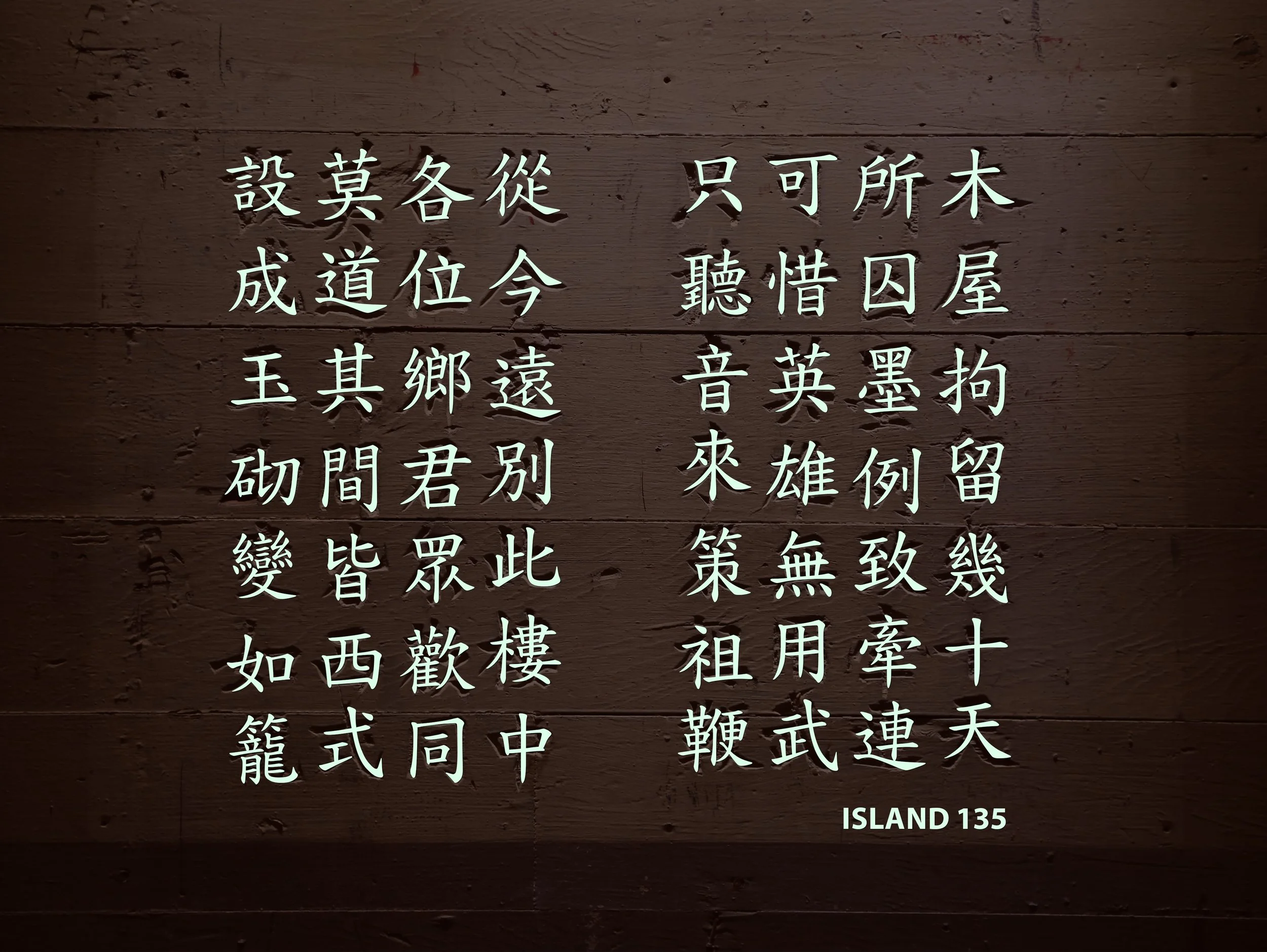Chinese Poetry of the Detention Barracks
The most visible and durable testimony of those detained at Angel Island are the notable poems, some written, some carved with a classical Cantonese technique into the wooden walls of the barracks. This was not mere graffiti. Couched in classical allegories and historical references, these poems poured forth the aspirations of the immigrants with their anger and sadness at the injustice of their initial reception by America.
THE POETS
From 1910 to 1940 most of Angel Island’s Chinese detainees were young men between 14 and 18 years of age. Some had an elementary school education in the form of private tutoring, but they were rarely educated at the high school level. Detainees knew some classical Chinese and the ABC’s of Chinese calligraphy. However, some fairly high quality poems indicated that there were a few older and well-educated persons amidst the detainee population. The overwhelming majority of the authors of the poems did not sign their names to their poems. Only a dozen or so signed their real names. A few others included their surnames, birthplaces, and the dates of their writing.
POETRY THEMES
Traditionally, Chinese scholars emphasize that poetry reveals one’s heart, aspirations and feelings. One can imagine that a group of young men with some education came across the Pacific Ocean with very high expectations of a new life in the New World. They had no idea that they would be detained on Angel Island. Given this situation, the prevailing sentiments were disappointment, anger, depression and homesickness beyond some imaginary lines, a complex only found in youth. Some themes have been found in the poetry at the Immigration Station. Theses themes include: missing home village; unfulfilled aspirations; concerning the nation and people; hopelessness and pain; hatred; life in detention; and ancient stories, legends and historical figures.
POETRY FORMS
The poems on Angel Island mainly are of the classic Chinese poetry, notably the Tang Poetry. Some of the poems actually observe the strict rhyming patterns, couplet requirements and the regulation of tunes. But this is not universal to all poems.
Island 135 was published in Him Mark Lai, Genny Lim, and Judy Yung’s book, Island: Poetry and History of Chinese Immigrants on Angel Island, 1910-1940, 2nd edition (Seattle: University of Washington Press, 2014).



